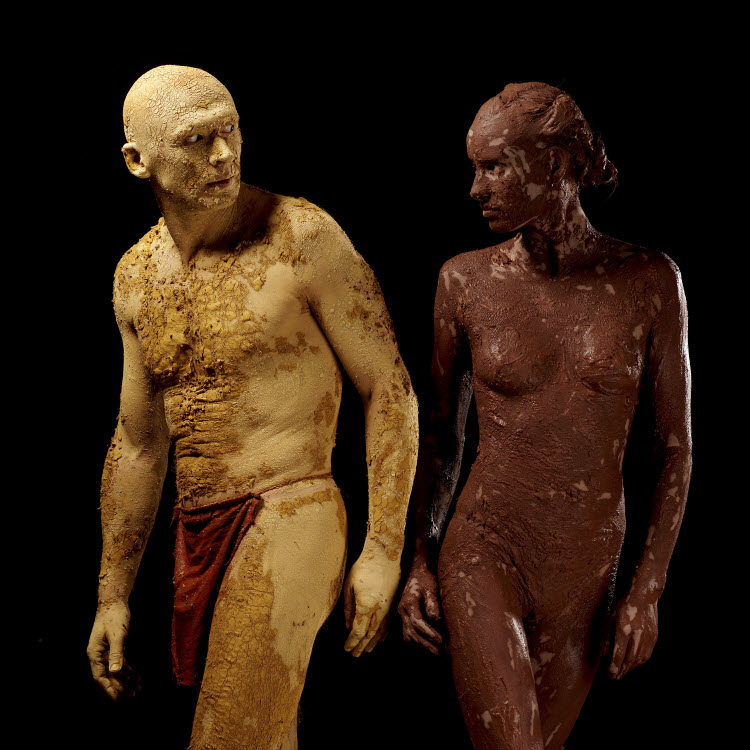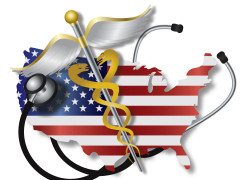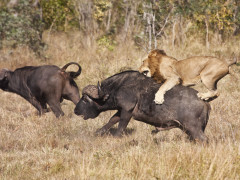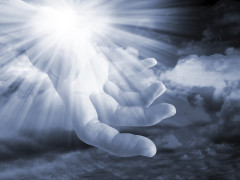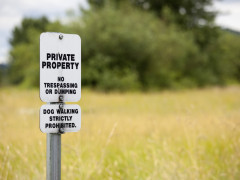The development of private property and slavery are like the development of clothing. How so?
[This post continues my discussion of why Aquinas holds there was no private property in Paradise. Other topics in the series include in order: 1. No property in Paradise, 2. Life in Paradise, 3. No Labor in Paradise, 4. Sexuality and Procreation in Paradise, 5. The Children of Adam and Eve, 6. Were Adam and Eve Vegetarians? 7. No Equality in Paradise, 8. Subjection and Government in Paradise 9. Private Property, the Result of Sin, 10. Aquinas’s Analogy: Clothing, Slavery and Private Property. Or download the full essay here: No Property in Paradise: How Aquinas Understands the Origin of Private Property]
Having seen in the previous post that private property arises sequentially after and because of human sin, we are now in a position to understand Aquinas’s intriguing comparison of clothing, slavery and private property. The comparison of these three practices is interesting for what it tells us about Aquinas’s conception of private property and natural law itself.
Aquinas makes the comparison when considering whether natural law is subject to change. He argues that it is not. Natural law never changes. But to make his case he must consider a couple of institutions that seem to contradict this basic principle. Two examples stand out: private property and slavery. As we shall see, to respond to the question, he compares the development of these institutions to the development of clothing. Once again he draws on the authority of St. Isidore to pose his objection:[1]See Aquinas’s use St. Isidore’s view in my previous discussion.
Objection 3: Further, Isidore says (Etym. 5:4) that “the possession of all things in common, and universal freedom, are matters of natural law.” But these things are seen to be changed by human laws. Therefore it seems that the natural law is subject to change.[2]ST I-II, 94, v
Aquinas poses a very powerful and compelling objection here. Are human laws allowed to contradict natural law? One would assume not. After all, natural law represents God’s will as expressed in the natural order. Then, how do we account for the development of slavery and private property? Don’t these practices contradict natural law, which holds that everyone is free and all things are in common, as St. Isidore has noted? To put the question even more provocatively, if God created the world without slavery and private property, on what grounds can humans create institutions of slavery and private property without corrupting or perverting natural law?[3]Indeed, we know that Aquinas thinks certain human sins can pervert natural law, as for example, homosexual sex, which has the special name of an unnatural crime (ST I-II, 94, iii ad. 2).
Aquinas answers the objection by comparing the development of private property and slavery to the development of clothing. Let’s follow his argument.
Reply to Objection 3: A thing is said to belong to the natural law in two ways. First, because nature inclines thereto: e.g. that one should not do harm to another. Secondly, because nature did not bring in the contrary: thus we might say that for man to be naked is of the natural law, because nature did not give him clothes, but art invented them.[4]Blackfriars (vol. 28, 95) translates “these he has to make by art” In this sense, “the possession of all things in common and universal freedom” are said to be of the natural law, because, to wit, the distinction of possessions and slavery were not brought in by nature, but devised by human reason for the benefit of human life. Accordingly the law of nature was not changed in this respect, except by addition.[5]I-II, 94, v, ad.
Aquinas compares private property and slavery to clothing in making the argument that these are human institutions that do not violate natural law, because “nature did not bring in its contrary.” Let’s first follow his reasoning on clothing. As he puts it, “thus we might say that for man to be naked is of the natural law, because nature did not give him clothes, but art invented them.” We have seen already in earlier posts that Aquinas holds that clothing arises because of human sin. Before sin, humans had no need of clothing. They didn’t need it for protection of their bodies and they weren’t ashamed of uncontrollable lust or its symptoms. But after sin, they need clothing because they lost the protection of their bodies from the elements and their sensual desires become unruly and the rebellion of the body became visually apparent. On the origin of clothing, Aquinas says here, “art invented them,” meaning that humans did not naturally have fur, and clothing must be produced by humans. Clothing is thus a human invention. He may also be alluding to Genesis 3.7 where Adam and Eve realize they are naked and sew leaves together to cover their nakedness.
The point here is that nature (God) did not give Adam and Eve clothing (or fur), nor even recommend clothing as the way humans should live. Clothing is a human invention.[6]While God subsequently makes them clothing from animal skins (Gen 3.21), God did not create them with fur and the invention of clothing is originally a human idea and so “art invented them.” … Continue reading Therefore, we might say that nakedness belongs to the natural law, “because nature did not bring in its contrary.” What Aquinas seems to mean here is that nature did not clothe humans (i.e. give them fur). Since nature did not endorse the contrary of nakedness, we might say that nakedness is of the natural law. Essentially, then, Aquinas is saying that something is of the natural law, either when nature straightforwardly and explicitly recommends it, or by inference when nature doesn’t recommend its contrary.
The argument applied to clothing can also be applied to slavery and private property, says Aquinas. Nature never endorsed slavery and private property. In this sense, “the possession of all things in common and universal freedom” are said to be of the natural law, because, to wit, the distinction of possessions and slavery were not brought in by nature, but devised by human reason for the benefit of human life.” Again the claim seems to be that since nature never endorsed private property or slavery per se, we can say that the opposites are of natural law.[7]Aquinas seems to contradict himself on this point because elsewhere he does say that slavery is forbidden in Paradise and private property is not needed before sin. I shall return to these points … Continue reading
Here is how Aquinas puts the same point again in his discussion of private property:
Reply to Objection 1: Community of goods is ascribed to the natural law, not that the natural law dictates that all things should be possessed in common and that nothing should be possessed as one’s own: but because the division of possessions is not according to the natural law, but rather arose from human agreement which belongs to positive law, as stated above (Question 57, Articles 2,3). Hence the ownership of possessions is not contrary to the natural law, but an addition thereto devised by human reason.[8]ST II-II, 66, I ad. 2
If you find all this a bit confusing, I do too. It doesn’t seem that Aquinas straightforwardly and consistently defines “what’s natural,” which is so critical to his whole religious philosophical approach. It all has the feel of ad hoc rules rather than a consistent approach to justify a particular point of view. Sometimes he defines what’s natural by the presence of what exists and appears to be “normal” (as in what today we call heterosexuality). Thus its opposite homosexuality is considered unnatural and a sin.[9]I-II, 94, iii At other times he defines what’s natural by the absence of its contrary (as he does with nakedness, freedom and everything in common). In such cases, these are considered natural, but their opposites are considered a reasonable extension of the natural law, and not a change or perversion of it (e.g., clothing, slavery and private property). The seeming ad hoc quality may be the result of Aquinas having received a set of views from the philosophical tradition about what’s natural and having to reconcile it to the story of creation. And yet Aquinas is such a deep thinker and so concerned about leveraging reason, that it seems too easy to simply assume he is not thinking the matter through clearly. Since the question of what’s natural in Aquinas is quite complex and thus broader than the specific topic of private property, I will set it aside here and take it up again in the next post.
For now, let us accept that Aquinas wishes us to understand that private property and slavery, like clothing, are human institutions and practices that do not contradict natural law but are reasonable and beneficial extensions of it.[10]On the beneficial aspects of private property, see my commentary on Aquinas’s discussion It is also interesting to ponder the scope of Aquinas’s analogy between clothing, slavery and private property. Are private property and slavery simply like clothing in the sense that both are human arts or inventions? Or, alternatively, are private property and slavery like clothing, in being a response to and reminder of human sin? What is the force of Aquinas’s analogy?
It appears that the analogy includes the fact that all three arise from human sin. We have seen already that private property arises because of sin. Had Adam and Eve not sinned, there never would have been private property since everything was common and wills were ordered. The same is true of slavery, since Aquinas makes clear that slavery was not possible in Paradise either, as already discussed. Thus there is a deep analogy between nakedness, freedom and common possessions. The three are not the same only as illustrations of how nature does not rule out their opposites. All three were part of the state of Paradise but disappear and become unworkable as a result of human sin. Nakedness is no longer tolerable and clothing is invented to cover up shame and to keep humans warm in inclement weather. Private property is invented and responds to the unruliness of desire and disorder of the human will; slavery, which is forbidden in Paradise and contrary to the perfection of nature, is invented as a punishment through positive law. Aquinas cites Genesis 9.25 and the punishment of Canaan as the point at which slavery is first implemented as a punishment.[11]Suppl. IIIae 52, i, ad. 2. It is interesting that here God is the one who punishes Canaan with slavery. How Aquinas reconciles that with slavery being a human invention is not clear to me. It is also … Continue reading
In sum, our takeaway is that though private property is regarded as a critical and beneficial human institution, it is the contrary of what was true in Paradise. Like clothing and slavery, private property arises out of a need born from the sinful state of human beings. To be sure, Aquinas does not draw out and emphasize the relationship of private property to sin or greed the way some of his predecessors did. But there is no mistaking the fact that private property arises because of Adam and Eve’s sin. Without sin, there would have been no private property, slavery or clothing. In the world in which we live, which is the postlapsarian world after Adam and Eve’s sin, these practices are understood to be reasonable responses to the human condition. But they are certainly different from other creative human practices (such as scientific inquiry, and government) that would have arisen even if human beings had never sinned and had stayed in the perfect condition in Paradise.
References
| ↑1 | See Aquinas’s use St. Isidore’s view in my previous discussion. |
|---|---|
| ↑2 | ST I-II, 94, v |
| ↑3 | Indeed, we know that Aquinas thinks certain human sins can pervert natural law, as for example, homosexual sex, which has the special name of an unnatural crime (ST I-II, 94, iii ad. 2). |
| ↑4 | Blackfriars (vol. 28, 95) translates “these he has to make by art” |
| ↑5 | I-II, 94, v, ad. |
| ↑6 | While God subsequently makes them clothing from animal skins (Gen 3.21), God did not create them with fur and the invention of clothing is originally a human idea and so “art invented them.” Blackfriars translates the statement this way:”thus we might say that it is of natural law for man to be naked, for nature does not give him clothes; these he has to make by art.” As an aside, it is interesting to consider too that perhaps the first taking of life occurred here, when God created clothing for Adam and Eve. |
| ↑7 | Aquinas seems to contradict himself on this point because elsewhere he does say that slavery is forbidden in Paradise and private property is not needed before sin. I shall return to these points later in probing Aquinas’s view more deeply. |
| ↑8 | ST II-II, 66, I ad. 2 |
| ↑9 | I-II, 94, iii |
| ↑10 | On the beneficial aspects of private property, see my commentary on Aquinas’s discussion |
| ↑11 | Suppl. IIIae 52, i, ad. 2. It is interesting that here God is the one who punishes Canaan with slavery. How Aquinas reconciles that with slavery being a human invention is not clear to me. It is also worth investigating how Aquinas would have made sense of the fact that Ham, Canaan’s father, is the one who sins by seeing his father’s nakedness. Why then is Canaan his son enslaved and not Ham himself? |
